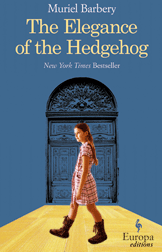 Imagine this is your workday:
Imagine this is your workday:
You wake up from your bunk bed in a cramped dorm room for eight, and with the morning alarm promptly ringing at 6am you are up and fighting for use of the bathroom with all the other women on your dorm floor. By 7am you have eaten in the factory cafeteria along with the other 50,000 employees in the factory complex. That’s right- the factory employs over 70,000 people, more than the population of a small American city! After breakfast you are stationed on your assembly line team. Your task: to cut the upper materials that will eventually become the body for sneakers of famous brands like Puma, Nike, Adidas, and many others. You do this for 12 hours everyday, with a 1 hour lunch break and dinner break. You finish work by 9 or 10pm and return to your dorm to begin a new day tomorrow. It’s only Monday, and you still have 5 more days of work before your one Sunday off. You make roughly 1,000 rmb a month- $160.
Such is the life of many factory girls in China, yet their move from the farming villages into working conditions such as these are seen as a success and a triumph for millions of migrant women.
Leslie Chang offers a fascinating glimpse into the lives of real young migrant women in China, girls our age, who move from their rural villages to bustling centers like Shenzhen, Dongguan and Guangzhou, all of a two hour train ride away from Hong Kong. Simultaneously, Chang also weaves in her family’s own personal history in China. And for once it felt very satisfying to get a Chinese American’s perspective on all the happenings of modern China. She is also the wife of writer Peter Hessler, who wrote two great books on teaching and living in China- Buki has the one I traded at our book swap, Oracle Bones.
Whenever I read books about China, I always reflect upon my own experiences there, and I feel like I’m re-living much of it all over again. Chang provides amusing and humorous glimpses into facets of Chinese society I may never encounter, making the book a fast and entertaining read. I also really appreciated the way in which she worked in the personal story of her family, as I felt it was something I have been wanting to do with my own experiences in learning about my family’s history in China and Hong Kong.
Another favorite scene in the book is when she writes about one of the main characters who works in a handbag factory. It turns out that the handbag factory makes purses for Coach, but the girl and her fellow workers never really understand the true value of how much the bags are worth, trading them among friends and never really using them.
Hope you will all get a chance to read this!



